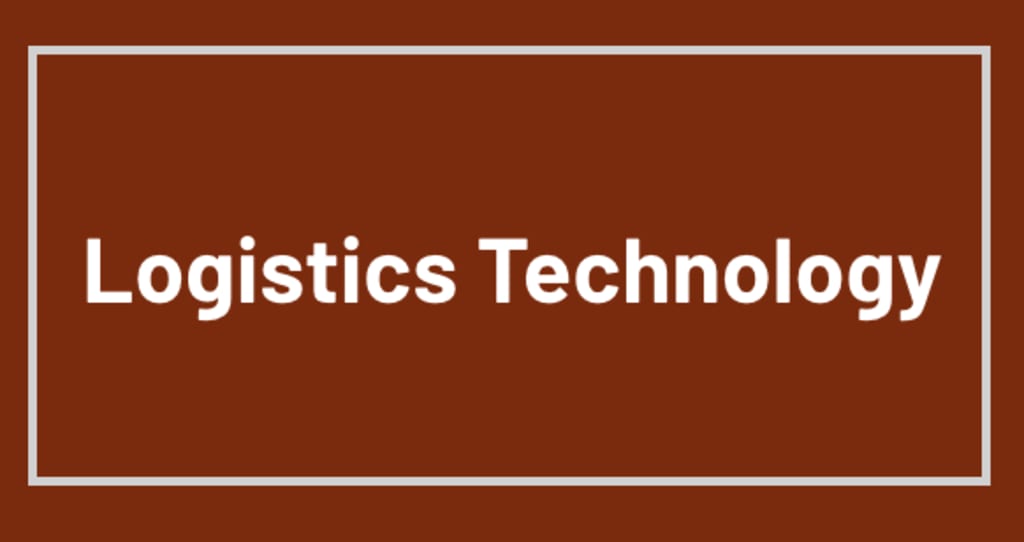Everything About Logistics Technology in eCommerce
Logistics Technology

Logistics technology has been revolutionized by the eCommerce industry. Here's everything you need to know about it. The advances in information and communication technology (ICT) have led to massive changes in the retail sector and how goods are bought and sold.
More than 60% of online shoppers abandon their carts because they can’t get a good sense of what will happen when they hit the checkout button, so making your eCommerce logistics as smooth as possible is essential to your success. In this article, we'll explore all there is to know about eCommerce logistics technology – from warehousing and order fulfillment to last-mile delivery and beyond. So, whether you're just starting out in eCommerce or you're looking for ways to improve
1. What is logistics technology and what are its benefits for eCommerce businesses?
Logistics technology is a broad term that refers to the various systems and technologies used to manage the transportation and storage of goods. This can include everything from software that tracks inventory levels and shipping schedules, to automated warehouse robots that pick and pack orders.
The benefits of logistics technology for eCommerce businesses are many and varied. Perhaps most importantly, it can help to improve efficiency and accuracy in the fulfillment process, leading to happier customers and reduced costs. Additionally, logistics technology can provide valuable data that can be used to optimize stock levels, shipping routes, and much more. In short, investing in logistics technology is a smart move for any eCommerce business that wants to stay ahead of the competition.
2. The different types of logistics technology and how they work
There are a variety of different types of logistics technology available on the market today. Each type of technology has its own unique set of benefits and features. Here is a brief overview of some of the most popular types of logistics technology:-
Warehouse management systems (WMS) help businesses to track inventory levels, manage orders, and optimize warehouse operations. WMS can be used to create real-time visibility into stock levels, which can help to reduce the risk of stockouts and improve customer service levels. Additionally, WMS can help businesses to track trends and improve forecasting accuracy.
Transportation management systems (TMS) help businesses to plan, execute and optimize their transportation operations. TMS can be used to create efficiencies in routing and scheduling, as well as to track shipment progress and performance. Additionally, TMS can help businesses to reduce transportation costs and improve customer service levels.
Supply chain management systems (SCM) help businesses to plan, execute and optimize their supply chain operations. SCM can be used to track inventory levels, manage supplier relationships, and optimize production schedules. Additionally, SCM can help businesses to reduce costs and improve customer satisfaction levels.
3. How to choose the right logistics technology for your business?
Logistics technology has come a long way in recent years, and there is now a wide range of options available to businesses. With so many choices on the market, it can be difficult to know which one is right for your company. Here are a few factors to consider when selecting logistics technology for your business:
First, think about what type of business you have. If you have a very small business, you may not need all the bells and whistles that come with some of the more sophisticated logistics technology systems. On the other hand, if you have a large business with multiple locations, you'll need a system that can accommodate your needs.
Second, consider how much money you're willing to spend on logistics technology. There are a variety of options available at different price points, so it's important to find one that fits within your budget. Keep in mind that some of the more expensive systems may offer features that could end up saving you money in the long run.
Finally, take some time to learn about the different features available and decide which ones are most important to your business. Some systems offer basic tracking and reporting capabilities while others include more advanced features such as real-time tracking and route optimization. By taking the
4. The future of logistics technology and its impact on eCommerce
The future of logistics is set to be revolutionized by a number of new technologies. One of the most important is blockchain, which has the potential to streamline supply chains and make them more transparent. In addition, advances in robotics and automation are making it possible for warehouses and distribution centers to operate more efficiently.
These technologies are already having a major impact on eCommerce, making it easier and faster for businesses to get products to their customers. As these technologies continue to develop, they are likely to have an even greater impact on the logistics industry, making it more efficient and cost-effective.
About the Creator
Kiara Mehra
Ecommerce Expert who loves to share through her writings.






Comments
There are no comments for this story
Be the first to respond and start the conversation.